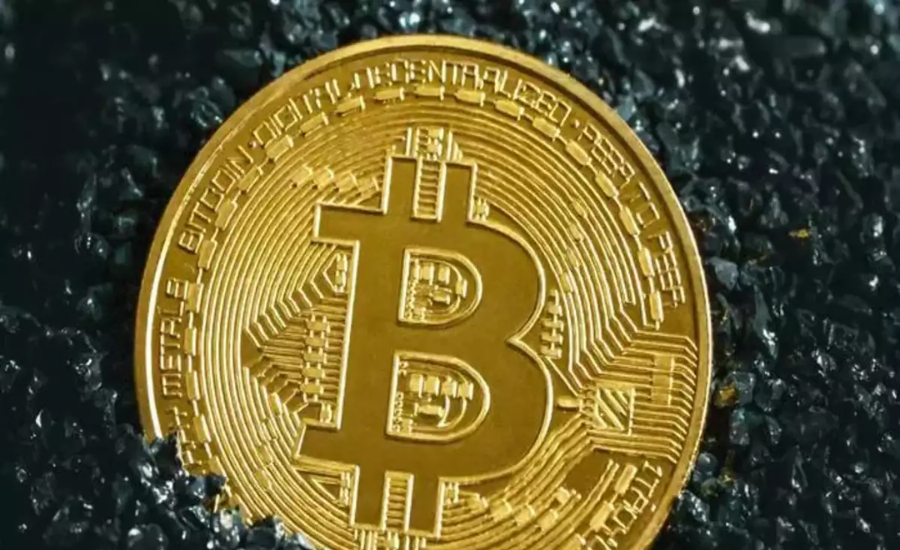Bitcoin price, the first and most recognized cryptocurrency, was introduced in January 2009 following the release of a groundbreaking whitepaper by a pseudonymous entity known as Satoshi Nakamoto. This unique structure has revolutionized the way online transactions are conducted, offering a system where individuals can exchange value securely and directly.
Bitcoin’s decentralized nature and transparent ledger, known as the blockchain, have made it a cornerstone of the digital currency movement. Its creation was fueled by the desire to create an alternative financial system that operates independently of traditional banks and centralized authorities.
Latest News and Updates the Bitcoin Price in Market

Bitcoin’s Market Sensitivity to U.S. Politics
The U.S. political landscape continues to impact Bitcoin’s market performance, with recent events such as the nation reaching a significant $36 trillion debt ceiling and the inauguration of former President Donald Trump drawing considerable attention from investors. Analysts have observed that these political developments may lead to fluctuations in Bitcoin’s price, driven by heightened market uncertainty and shifts in investor behavior. Some experts have even predicted a potential market correction as global economic and political conditions evolve.
Recent Growth and Investor Sentiment
Despite the uncertainty, Bitcoin has demonstrated substantial growth in recent months, with rising investor sentiment reflecting optimism about the future of cryptocurrency. Many investors view Bitcoin as a hedge against traditional financial market instability, particularly during periods of political upheaval. The combination of political milestones and economic challenges has amplified Bitcoin’s appeal as a decentralized and inflation-resistant asset.
The intersection of U.S. political developments and the Bitcoin market highlights the increasing integration of cryptocurrency into global financial systems. While market corrections remain a possibility, the optimism surrounding Bitcoin’s role in the broader financial landscape persists. Analysts suggest that continued growth will depend on regulatory clarity, technological advancements, and Bitcoin’s ability to navigate macroeconomic pressures.
As the U.S. political climate evolves, Bitcoin’s market performance will remain under close scrutiny, underscoring its role as a dynamic and influential financial asset in an ever-changing global economy.
Institutional Investment in Bitcoin
A Surge in Institutional Interest
Bitcoin has witnessed a remarkable surge in institutional investment, with a reported $2.2 billion flowing into the cryptocurrency market. This influx highlights the growing recognition of Bitcoin as a legitimate asset class among major financial institutions and investment firms. The increasing regulatory clarity in the United States has played a pivotal role in bolstering institutional confidence, paving the way for broader adoption of digital assets.
Bitcoin as a Hedge Against Inflation
One of the primary drivers of this trend is the perception of Bitcoin as a hedge against inflation. With traditional fiat currencies facing devaluation due to rising inflation rates and ongoing economic uncertainties, institutional investors are turning to Bitcoin as a store of value. Bitcoin’s decentralized nature and limited supply make it an attractive option for those seeking to diversify their portfolios and safeguard their wealth.
State-Level Interest in Bitcoin
The growing institutional interest in Bitcoin is mirrored at the state level, with several U.S. states exploring innovative ways to integrate cryptocurrency into their financial systems. For instance, Massachusetts is considering allocating a portion of its Rainy Day Fund to Bitcoin investments. This move aims to diversify the state’s portfolio while providing a buffer against economic instability. Such initiatives signal a broader acceptance of Bitcoin as a tool for financial stability and innovation.
Implications for the Future
The surge in institutional and state-level investment underscores Bitcoin’s evolution from a speculative asset to a cornerstone of modern financial strategy. As regulatory frameworks solidify and interest in digital assets expands, Bitcoin’s role in institutional portfolios is poised to grow further, reshaping the global financial landscape.
Bitcoin’s Record High and Market Trends
Bitcoin Hits a Historic Milestone
Bitcoin has reached an unprecedented all-time high of over $109,000, cementing its position as a leading asset in the global financial landscape. This milestone is largely attributed to heightened investor optimism, particularly in light of the Trump administration’s pro-crypto stance. The administration’s favorable outlook toward cryptocurrencies has strengthened market confidence, driving significant capital inflows and pushing Bitcoin to new heights.
Investor Sentiment and Market Speculation
The surge in Bitcoin’s price reflects growing confidence in its long-term potential as a store of value and a hedge against traditional market risks. Analysts are closely monitoring the market and speculate that Bitcoin could soon surpass the $110,000 threshold. However, this optimistic outlook is tempered by the potential for increased market volatility, which could lead to a retest of lower support levels. Such fluctuations are characteristic of the cryptocurrency market, where rapid gains are often followed by short-term corrections.
Navigating Market Volatility
While Bitcoin’s recent performance highlights its resilience and appeal, investors are urged to approach the market with caution. As the cryptocurrency moves toward the $110,000 mark, factors such as regulatory developments, macroeconomic conditions, and technological advancements will play pivotal roles in shaping its trajectory.
The Road Ahead
Bitcoin’s historic milestone underscores its growing acceptance and relevance in the global economy. As pro-crypto policies and institutional adoption continue to shape the market, Bitcoin’s path forward promises to remain dynamic, offering both opportunities and challenges for investors.
Bitcoin Market Data

Recent Price Movements
Bitcoin has experienced significant price movement in recent days, with a 5.22% decrease in its value over the past 24 hours, bringing its price down to $102,200. This drop marks a brief pause in the recent bullish momentum that had propelled the cryptocurrency to new heights. Despite this short-term correction, Bitcoin’s overall market trend remains optimistic, supported by continued investor interest and strong demand for digital assets.
Trading Volume and Market Sentiment
Alongside the price decline, trading volumes have also decreased by 3.51%, indicating a temporary slowdown in market activity. This dip in trading volume suggests that some investors may be taking a wait-and-see approach, cautious of potential market fluctuations in the short term. However, these brief pauses in momentum are not uncommon in the volatile cryptocurrency market and do not necessarily indicate a long-term trend.
Positive Long-Term Outlook
Despite the recent correction, Bitcoin’s market outlook remains positive. The cryptocurrency continues to attract significant institutional interest, with major financial institutions and corporations incorporating Bitcoin into their portfolios. This growing institutional involvement provides further validation of Bitcoin’s potential as a long-term store of value and a hedge against inflation.
Institutional Interest Driving Growth
As Bitcoin garners more mainstream attention and institutional support, its long-term growth prospects remain strong. The recent price dip, coupled with sustained institutional interest, is expected to create a solid foundation for future price appreciation. Investors are likely to continue watching Bitcoin closely as it navigates market fluctuations while maintaining its position as a leading asset in the digital economy.
Bitcoin ETFs and Institutional Inflows
Record Inflows into Bitcoin ETFs
Bitcoin Exchange-Traded Funds (ETFs) have experienced a surge in institutional inflows, reflecting a growing acceptance of Bitcoin as a mainstream asset. Notable ETFs, such as BlackRock’s IBIT and Fidelity’s FBTC, have seen remarkable growth, with total net inflows surpassing $1.8 billion. This influx underscores the increasing involvement of institutional investors in the cryptocurrency market, further solidifying Bitcoin’s standing in the global financial landscape.
Institutional Adoption and Market Validation
The surge in Bitcoin ETF inflows signals a major shift in the financial industry, as institutional investors increasingly embrace Bitcoin as a legitimate asset class. With established financial institutions like BlackRock and Fidelity launching and managing Bitcoin ETFs, Bitcoin is gaining recognition from traditional investors who may have previously been cautious about the digital asset. These ETFs provide a convenient way for institutional investors to gain exposure to Bitcoin without directly purchasing and managing the cryptocurrency, enhancing market accessibility.
Bitcoin as a Mainstream Asset Class
The growing institutional participation in Bitcoin ETFs highlights the cryptocurrency’s evolution from a speculative asset to a more stable and widely accepted investment option. As more institutions invest in Bitcoin through ETFs, the digital asset is becoming more integrated into global financial markets. This shift is also likely to drive further adoption, with Bitcoin potentially becoming a key component of diversified investment portfolios.
A Strong Future for Bitcoin
The continued inflow of institutional capital into Bitcoin ETFs suggests a promising future for the cryptocurrency.
Bitcoin as a Store of Value and Hedge
Bitcoin as a Digital Gold
Like gold, Bitcoin is seen as a safe haven in times of economic uncertainty, making it an attractive alternative to traditional assets. Its decentralized nature and fixed supply limit the risks of inflation and currency devaluation, characteristics that enhance its appeal as a long-term investment.
A Hedge Against Inflation
In the face of rising inflation and fluctuating fiat currencies, Bitcoin has become an important hedge for many investors seeking to protect their purchasing power. This scarcity feature makes Bitcoin resistant to inflationary pressures and adds to its appeal as an inflation hedge. Investors are increasingly turning to Bitcoin to safeguard their wealth from the erosion caused by inflation in fiat markets.
Bitcoin’s Resilience During Market Instability
Bitcoin’s decentralized and borderless nature also offers a degree of resilience during times of market instability. Traditional financial systems can be heavily impacted by geopolitical tensions, monetary policy changes, or economic downturns, while Bitcoin operates independently of central authorities.
The Growing Adoption of Bitcoin as a Safe-Haven Asset
As more institutional investors and high-net-worth individuals turn to Bitcoin as a store of value, its role as a hedge against inflation and market instability continues to strengthen. With its proven resilience and long-term growth potential, Bitcoin is increasingly becoming a central component of diversified investment portfolios.
Bitcoin’s Role in the Global Economy

Growing Market Capitalization and Influence
As Bitcoin’s market capitalization continues to rise, its influence on global financial systems is becoming more pronounced. The digital asset has moved beyond its early roots as a speculative investment, evolving into a key player in the broader financial ecosystem. With a growing number of institutional investors entering the market, Bitcoin is increasingly seen as a legitimate asset class and an important component of modern economic infrastructure.
Central Bank Attention and Regulatory Discussions
The rapid growth of Bitcoin has caught the attention of central banks and financial regulators worldwide. As cryptocurrencies like Bitcoin gain traction, central banks are recognizing the need to address the implications for monetary policy and financial stability. Regulators are increasingly discussing frameworks to govern the use and trading of cryptocurrencies, aiming to balance innovation with safeguards against potential risks.
The Emergence of Central Bank Digital Currencies (CBDCs)
In response to the growing popularity of Bitcoin and other cryptocurrencies, some countries are exploring the creation of their own Central Bank Digital Currencies (CBDCs). These digital currencies, backed by central banks, aim to provide the benefits of digital assets, such as faster payments and greater financial inclusion, while maintaining the stability and oversight associated with traditional fiat currencies. The introduction of CBDCs represents a significant shift in how governments view digital currencies and their potential to reshape global financial systems.
The Future of Bitcoin in Global Economies
Bitcoin’s increasing role in the global economy signals a future where decentralized finance (DeFi) could coexist with traditional financial structures. As governments and financial institutions continue to adapt, Bitcoin’s influence is likely to expand, shaping the way we perceive and interact with money.
The Future of Bitcoin
Growing Adoption and Institutional Involvement
The future of Bitcoin remains uncertain in many respects, but its growing adoption among both retail and institutional investors suggests a positive trajectory. Bitcoin’s appeal as a store of value, inflation hedge, and a decentralized asset has attracted major financial institutions, pension funds, and corporations. As more investors enter the market, Bitcoin is likely to continue its rise in prominence.
Regulatory Clarity and Its Impact
One of the key factors influencing Bitcoin’s future is the development of regulatory frameworks around the world. As governments and regulators work to establish clear rules for the cryptocurrency market, the increased regulatory clarity will likely provide more confidence for investors. A stable regulatory environment is essential for the continued growth of Bitcoin, as it will reduce the risk of sudden policy shifts that could undermine the asset’s value.
Technological Advancements and Network Improvements
Technological advancements will also play a critical role in shaping Bitcoin’s future. Continued improvements in scalability, transaction speed, and energy efficiency could make Bitcoin even more appealing for both investors and users. Innovations such as the Lightning Network, which aims to enable faster and cheaper Bitcoin transactions, are already paving the way for a more practical and scalable cryptocurrency.
Bitcoin’s Role in the Digital Currency Ecosystem
With the rise of Central Bank Digital Currencies (CBDCs) and growing interest in decentralized finance (DeFi), Bitcoin’s role as the pioneer and leader in the cryptocurrency market remains strong. As adoption spreads and the ecosystem matures, Bitcoin could become a key asset in global economic transactions and financial markets.
FAQs
Q: What is Bitcoin?
A: Bitcoin is a decentralized cryptocurrency created in 2009. It operates without intermediaries, enabling secure peer-to-peer transactions through its blockchain technology.
Q: Why has Bitcoin’s price been fluctuating?
A: Bitcoin’s price is influenced by a variety of factors, including political developments, market sentiment, institutional investments, and regulatory changes. Its volatile nature is a common characteristic of cryptocurrencies.
Q: How are institutional investments affecting Bitcoin?
A: Institutional investments are driving Bitcoin’s growth, with significant investments from large financial firms and even U.S. states. These investments suggest a growing trust in Bitcoin as a long-term asset class.
Q: Can Bitcoin act as a store of value?
A: Yes, many investors consider Bitcoin a store of value, similar to gold, due to its limited supply and decentralized nature.
Q: What impact does Bitcoin have on the global economy?
A: Bitcoin’s increasing market capitalization is shaping global financial systems. It has prompted governments and financial institutions to explore digital currencies and adjust regulatory frameworks to accommodate the rise of cryptocurrencies.
Summary
Bitcoin, the first cryptocurrency, continues to evolve as a major player in the financial market. Its decentralized nature, along with its transparent blockchain, makes it a groundbreaking innovation in the world of digital currency. Recent developments, such as significant institutional investments, Bitcoin ETFs, and rising interest in its role as a store of value, further solidify Bitcoin’s place in the global economy. With growing political and financial support, Bitcoin’s future looks bright, though its inherent volatility remains a key consideration for investors. As more states and institutions adopt Bitcoin and integrate it into their financial systems, it is likely to continue shaping the future of digital currencies and global finance.
Stay engaged with this: Nftrandomize
